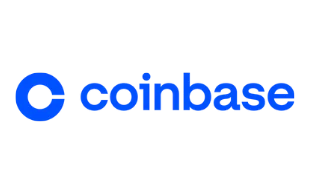OKX

- Trade LTC and 282 other cryptos.
- AUD deposits and withdrawals.
- Instant buy with AUD & advanced trading options.
This is not an endorsement of cryptocurrency or any specific provider, service or offering. It is not a recommendation to trade or use any services.
As one of the earliest altcoins, Litecoin (LTC)'s reputation as a low-cost payments crypto steered it to an all-time-high price of $631.80 in May 2021.
Today LTC is trading for $90.15, which is slightly up from yesterday's trading price of $91.52. Litecoin has seen a price decrease of -41% over the past year.
Before you buy Litecoin, make sure you understand these unique risks as well as its legal, regulatory and tax status here in Australia.
If you're ready to get started, read on for step-by-step instructions and a list of platforms you can use to buy Litecoin in Australia.
If it's your first time buying LTC all you'll need is a smartphone or computer, an internet connection, photo identification and a way to pay.
Best for beginners

Best for long term investors

Best Overall

If this is your first time buying cryptocurrency you'll need to look for a platform that accepts Australian dollars, like Cointree or CoinJar.
Don't worry too much about extra features or coins for now – you can always sign up with another exchange later.
Use the table to choose a platform that meets your needs and click the Go to site button to get started.
We currently don't have that product, but here are others to consider:
How we picked theseLitecoin (LTC) is a cryptocurrency built for payments. It enables near-instant, low-cost peer-to-peer transactions.
One of the earliest altcoins, Litecoin was launched in 2011 and was created from a copy – not to be confused with a fork – of Bitcoin's source code. Sometimes referred to as the silver to Bitcoin's gold, Litecoin's software is similar to Bitcoin's. However, compared to Bitcoin, it has:
The simpler algorithm that governs Litecoin's network allows for faster transaction processing. Transactions on the Bitcoin network can take up to hours. Depending on network congestion, transactions on Litecoin are completed within seconds.
For this reason, some think of Litecoin as a complement to Bitcoin, not a competitor. Litecoin and Bitcoin have many of the same properties, but Litecoin is often considered more of a payments technology and Bitcoin a store of value.
Read our beginner's guide to how Litecoin worksTo create an account with your chosen crypto platform, you only need an email address or mobile number. This will usually allow you to deposit cryptocurrency, but not AUD.
If you want to buy Litecoin with Australian dollars, you'll need to pass a Know Your Customer (KYC) check.
This is a standard security procedure for most exchanges in Australia and requires you to upload some photo ID, and in some cases a selfie with today's date.
KYC is usually approved instantly, but in rare cases, you may have to wait a few hours or days.
Once you've set up your account, you'll need to deposit funds to buy Litecoin with. We've listed out some popular ways to buy LTC and what you should know about each payment method.
Most exchanges let you buy as little as $5 worth of LTC, if not less. Just type in how much you want to spend in AUD and let the exchange work out the rest.
Some platforms only offer 1 way to buy Litecoin, while others provide several choices. The 2 most common ways to buy LTC are on the spot market or with an "instant buy" feature.
If it's your first time buying Litecoin this will be the fastest method – but also the least cost-effective.
You'll usually find the instant buy section under a "Buy now" heading on the platform you've chosen.
It should feature a simple interface that lets you enter the amount of Litecoin you want to buy, or Australian dollars you want to spend.
This is usually the only option available for credit or debit card purchases, but you may also be able to make an instant buy if you've pre-funded your account with a bank transfer.
Be prepared to pay a markup on LTC's market rate in exchange for the convenience.
If you see colourful charts with a range of prices, you're probably in the spot market.
The spot market is where buyers and sellers come together to place bids for LTC on the open market. It's usually the cheapest way to buy Litecoin because it lets traders set their own price.
You'll find the spot market under a "Trade" or "Spot" heading on the site or app menu of the platform you've chosen to use.
There are several different order types that you can make on the spot market.
There are dozens of different trading platforms to choose from when buying Litecoin in Australia, so to help you find your best option, keep these factors in mind:
There are plenty of places to buy Litecoin, and people in Australia can choose from platforms registered here at home or in locations all around the world. Opting for a locally registered LTC exchange typically offers more convenience, but may have some downsides depending on your goals.
You shouldn't invest in any asset, including LTC without doing plenty of research first. Before you buy Litecoin, make sure you understand and weigh up these risks:
Litecoin is treated as an asset by the Australian Tax Office (ATO), which means that if you've bought, sold or earned LTC during the financial year, you will need to report it at tax time. Investors will need to declare any profits as capital gains, while losses can be used to reduce your tax bill or offset any future gains.
If you make frequent BTC trades in a professional capacity you may be classified as a trader, which is a bit more complex. Learn more in our guide to crypto tax in Australia or use our round-up of the best crypto tax software to make tax reporting easier.
If you want to buy Litecoin, start by comparing a range of crypto brokers and exchanges available in Australia. Look at their features, fees, security and overall reputation to decide which platform is the right fit for you. Consider an exchange registered with AUSTRAC for added peace of mind.
Remember that owning and using Litecoin is not without its risks. Carefully consider investing in LTC as part of a wider strategy, and talk to a financial advisor if you have any questions.
Once you've bought some LTC, think about what your short and long-term goals are. This will help you decide whether to keep it on an exchange, or move it to your own wallet.
Despite dipping in September, the price of Bitcoin is up over 8% in the last month with Ether following at 4%. Meanwhile, Altcoins have been having a moment with BNB one of the top performers, jumping over 20% in the last 30 days alone, XRP up 6% and SOL having jumped 11%.
Meanwhile crypto exchanges in Australia will soon need to hold a financial services license (AFSL) under new draft legislation. Once rolled out, it means exchanges will be held to the same reporting and compliance standards as superfunds and online brokers.
Most beginners find it easiest to buy LTC through a centralised crypto trading platform, like the ones listed in our table.
If you've already got a personal non-custodial wallet, you can sometimes use it to purchase LTC directly via an in-built exchange integration.
The best place to purchase Litecoin depends on your needs. A good place to start your research is with our top picks.
If you are buying LTC to speculate on its price in the short term, you might want to buy it on an exchange such as Cointree or CoinJar, platforms that custody the asset for you. This will let you sell your LTC at any time.
If you are buying LTC to hold it for the long term, consider buying it on an exchange and transferring it to a hardware wallet to keep the private keys safely offline.
Yes, you can purchase LTC and hundreds of other digital assets on Coinbase.
Disclaimer: Cryptocurrencies, including Litecoin, are speculative, complex and involve significant risks – they are highly volatile and sensitive to secondary activity. Performance is unpredictable and past performance of LTC is no guarantee of future performance. Consider your own circumstances, and obtain your own advice, before relying on this information. You should also verify the nature of any product or service (including its legal status and relevant regulatory requirements) and consult the relevant Regulators' websites before making any decision. Finder, or the author, may have holdings in the Litecoin or any other cryptocurrency discussed.
This guide provides step-by-step instructions on how to buy , lists some exchanges where you can get it and provides daily price data on .
This guide provides step-by-step instructions on how to buy , lists some exchanges where you can get it and provides daily price data on .
This guide provides step-by-step instructions on how to buy , lists some exchanges where you can get it and provides daily price data on .
This guide provides step-by-step instructions on how to buy Hedera, lists some exchanges where you can get it and provides daily price data on HBAR.
A panel of industry specialists give us their predictions on the price of Binance Coin to 2035.
The easiest way to buy XRP in Australia is from a cryptocurrency exchange. Read our guide for a simple explanation of how to get started.
Learn how to buy Binance Coin in Australia with our simple step-by-step guide and tips on what to know before you get started.
Learn how to buy Cardano in Australia with our simple step-by-step guide and tips on what to know before you get started.